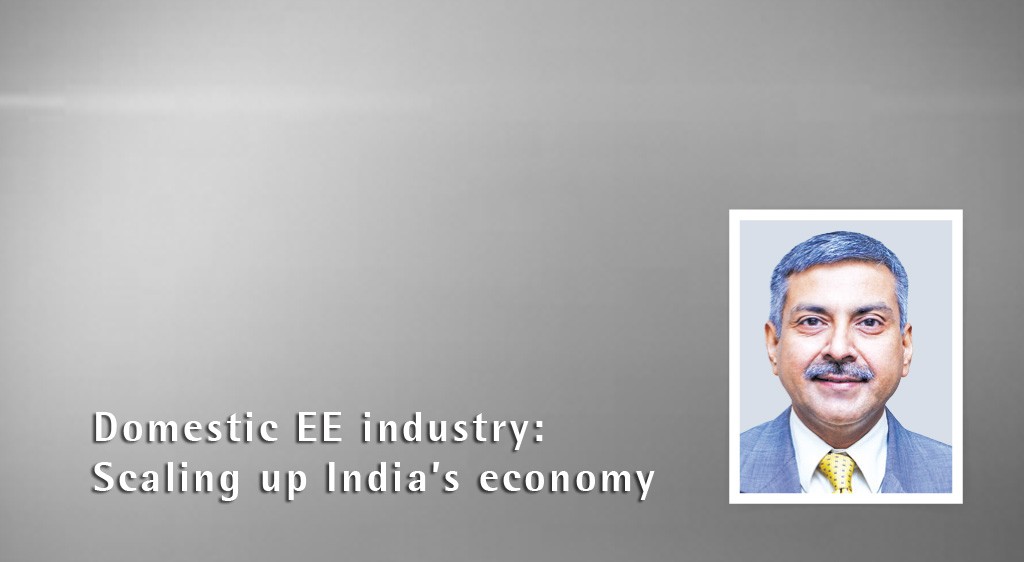Domestic EE industry: Scaling up India’s economy
By EPR Magazine Editorial August 10, 2018 4:47 pm IST
By EPR Magazine Editorial August 10, 2018 4:47 pm IST

Domestic manufacturers have invested heavily in technology transfer from their principals or have developed technology indigenous for creating and expanding manufacturing capacities, manpower and skill development to meet the growing demand which is in line with the ‘Make in India’
Sunil Misra,
Director General, IEEMA
IEEMA is the apex industry association of manufacturers of electrical, industrial electronics and allied equipment in India. In an interview with EPR, Sunil Misra, Director General, IEEMA, gives us an insight into the tremendous growth of the Indian EE industry and its role in securing the health of Indian economy.
The Indian EE industry has recorded a whopping growth of 12.8 per cent for 2017-18. Your comments?
Indian power sector is not only growing, but also undergoing a significant change that has redefined the industry outlook. Total installed capacity recently reached 344 GW, with state sector, central sector and private sector commanding 24.6 per cent, 30.2 per cent and 45.2 per cent respectively. A substantial improvement in growth was experienced in the 3rd and 4th quarter of 2017-18 which resulted in a sharp rise in the performance. During this period, the industry grew by 25 per cent in Q3 and 14 per cent in Q4. The astonishing growth of 12.8 per cent is propelled by growth in segments such as rotating machines by 12 per cent, HT Motors 18 per cent, cables 20 per cent and meters 28 per cent. The government is procuring smart and prepaid meters to be deployed across the country. It has urged electricity meter manufacturers to scale up production in India, as it plans to shift all connections to smart prepaid meters over the next three years. Energy Efficiency Services Limited (EESL) has floated two global tenders for procuring a total of 10 million smart meters.
How critical is the electrical equipment industry’s role in securing the health of the power infrastructure?
The country’s demand is, however, ever increasing and therefore, power sector has not only geared to grow but be at par with having the latest technology. In order achieve so and get deeper into global markets, significant addition to the installed generation capacity is required. With this, it is inevitable that the need for electrical equipments shall increase substantially in coming years. How much of the demand would be available to Indian industry depends upon various factors, some in control of the industry and some not in control of the industry such as reforms in domestic (taxes, processes and procedures) and international policies.
Given the exponential demand for the Indian EE industry over the last decade can we say India is now ‘the country of choice’ for production of electrical equipment?
Indian domestic manufacturers have invested heavily in technology transfer from their principals or have developed technology indigenous for creating and expanding manufacturing capacities, manpower and skill development to meet the growing demand which is in line with the ‘Make in India’.
We use cookies to personalize your experience. By continuing to visit this website you agree to our Terms & Conditions, Privacy Policy and Cookie Policy.